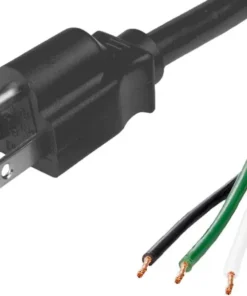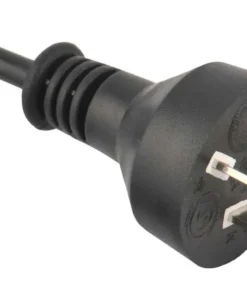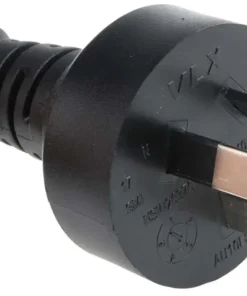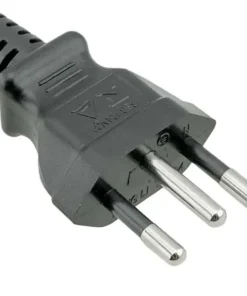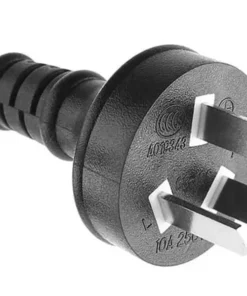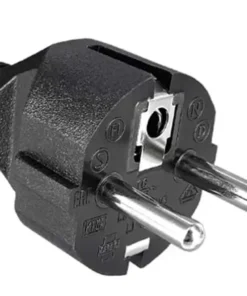Type E plugs are primarily used in France, Belgium, Poland, and several other countries. They differ slightly from the type F plugs commonly found in Germany and other parts of continental Europe.
Key features:
- Similar to type C but round and with a female grounding contact.
- Accepts the grounding pin of type E sockets.
- Compatible with type F plugs (but not vice versa in the past).
Safety:
- Recessed socket prevents shock hazard from partially inserted plugs.
- Grounded, providing additional safety.
Obsolete type E plug:
- Older version without grounding clips is rarely seen today.
- Not compatible with newer grounded sockets.
Hybrid E/F plug:
- Developed to bridge the gap between type E and F sockets.
- Features both grounding clips for type F sockets and a female contact for type E grounding pin.
- Slightly non-circular shape due to the notches for type F compatibility.
Additional notes:
- Type C plugs fit perfectly in type E sockets.
- Type E/F plugs are rated for 16 amps.
- Higher power equipment requires permanent wiring or other connectors.
Summary:
Type E plugs are a common standard in several countries, offering grounded safety features and compatibility with type F plugs. While the original ungrounded version is rarely encountered, the modern E/F plug ensures safe and versatile use across different socket types.
